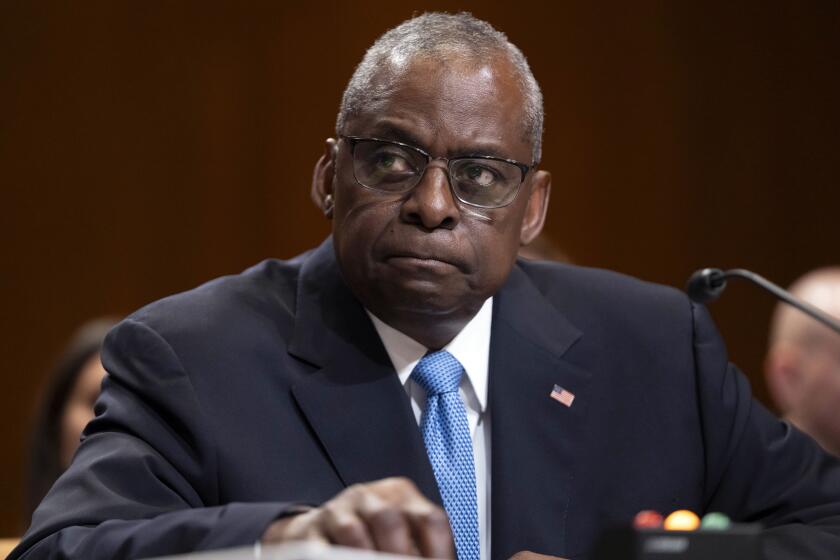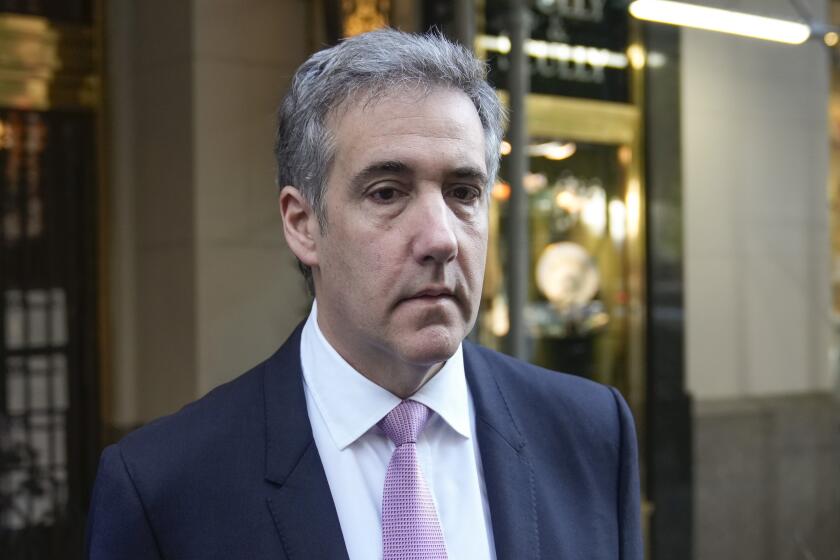Caution on Court Nominees
Since George Washington took the oath of office, U.S. presidents have nominated 149 men and women to the Supreme Court and many more to the federal courts of appeal and trial courts. In two centuries, the Senate has rejected 11 Supreme Court nominees and an uncertain number of prospective lower court judges. Seven others withdrew their high court nominations, some to avoid likely defeat.
The Senate has blocked ideologues, including die-hard Federalists during the 18th and early 19th centuries, who it concluded would not put aside their political beliefs on the bench. It killed the nominations of men viewed as shills for special interests and rejected others for being ethically compromised or simply not smart enough or wise enough to sit on federal courts for life.
That history matters as the Senate Judiciary Committee considers Dennis Shedd, Michael McConnell and Miguel Estrada for seats on the U.S. Court of Appeals. Republicans insist that the Senate panel, now with a one-vote Democratic edge, has dragged its feet in confirming President Bush’s picks and that the tough questions senators have asked these three men and others about their judicial philosophy and temperament are a partisan effort to destroy the reputations of qualified men and women. Neither charge holds water.
In the 14 months since the Democrats took narrow control of the Senate, the Judiciary Committee has confirmed 78 judges, 14 of them to appellate courts. That compares with an average of 39 confirmations a year during the six-plus years of Republican control.
The committee has readily approved men and women more centrist in their views and more likely to be fair-minded on the bench. But committee members are right to hesitate over Shedd, McConnell and Estrada.
Shedd has published a scant 60 opinions in 12 years as a judge. He has backed employers against claims by workers almost without exception. In criminal cases, he has generously interpreted the law to favor police. He held quixotically that the federal family leave law does not apply to state employees, a ruling that, by extension, could invalidate other federal civil rights protections for state workers.
McConnell has repeatedly asserted that Supreme Court precedents should not bind the current court. He has argued before the Supreme Court that religious schools should receive certain types of government aid on the same basis as public schools.
Estrada, a corporate lawyer who helped make Bush’s case in the Florida recount battle, has virtually no public writings and no judicial experience. The committee needs to see the memos he wrote at the U.S. solicitor general’s office, which Atty. Gen. John Ashcroft has refused to release.
The Senate’s obligation in confirming judges is to the people, not the president. All three men now before the Judiciary Committee should give members pause.
More to Read
Get the L.A. Times Politics newsletter
Deeply reported insights into legislation, politics and policy from Sacramento, Washington and beyond. In your inbox three times per week.
You may occasionally receive promotional content from the Los Angeles Times.






